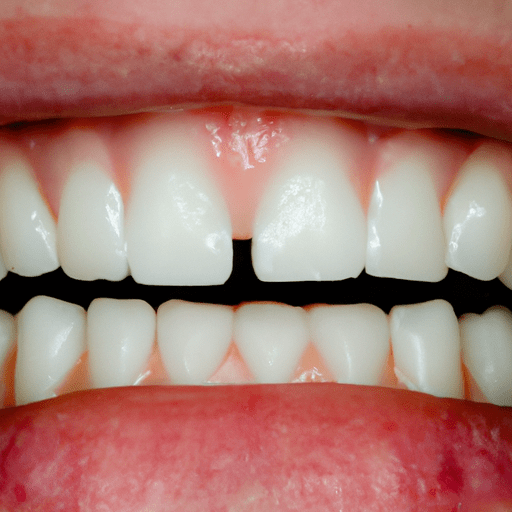Sleep disorders can have a profound impact on your daily life, affecting not just your physical well-being but also your mental and emotional health. In this article, we will explore the different types of sleep disorders and delve into their underlying causes. By understanding the meaning of sleep disorders, you can equip yourself with the knowledge to seek proper diagnosis and treatment, ultimately leading to a better quality of sleep and overall improved well-being. So, let’s dive into the fascinating world of sleep disorders and discover how they can be understood and managed.

Different Types of Sleep Disorders
Insomnia
Insomnia is a common sleep disorder characterized by difficulty falling asleep or staying asleep. People with insomnia often experience long periods of tossing and turning in bed, unable to find a restful position. This can lead to sleep deprivation, which can negatively affect overall well-being and daily functioning.
Sleep apnea
Sleep apnea is a sleep disorder that causes interruptions in breathing during sleep. These interruptions, known as apneas, can occur multiple times throughout the night and can last for several seconds to a minute. Sleep apnea can have serious health consequences if left untreated, as it can contribute to high blood pressure, heart disease, and stroke.
Restless leg syndrome
Restless leg syndrome is characterized by an uncontrollable urge to move the legs, often accompanied by uncomfortable sensations such as itching, tingling, or aching. This condition can make it difficult to fall asleep or stay asleep, leading to sleep deprivation and daytime fatigue.
Narcolepsy
Narcolepsy is a neurological disorder that causes excessive daytime sleepiness and a sudden loss of muscle control, known as cataplexy. People with narcolepsy often experience sudden and uncontrollable episodes of falling asleep during the day, which can be disruptive to daily activities and lead to accidents or injuries.
Parasomnias
Parasomnias are a group of sleep disorders that involve abnormal behaviors, movements, emotions, perceptions, and dreams during sleep. Examples of parasomnias include sleepwalking, night terrors, and sleep-related eating disorder. These sleep disorders can be disruptive to sleep and impact overall quality of life.
Circadian rhythm disorders
Circadian rhythm disorders occur when a person’s internal biological clock is out of sync with their desired sleep schedule. This can lead to difficulties in falling asleep or waking up at the desired times. Common circadian rhythm disorders include jet lag, shift work sleep disorder, and delayed sleep-wake phase disorder.
Identifying the Symptoms of Sleep Disorders
Difficulty falling or staying asleep
One of the most common symptoms of sleep disorders is difficulty falling asleep or staying asleep throughout the night. If you find yourself lying awake in bed for extended periods, unable to quiet your mind or achieve a restful state, it may be a sign of a sleep disorder.
Feeling tired after a full night’s sleep
Another symptom of sleep disorders is feeling excessively tired or fatigued, even after getting a full night’s sleep. This can be a result of sleep fragmentation, where the quality of sleep is compromised, leaving you feeling unrefreshed upon waking.
Excessive daytime sleepiness
Excessive daytime sleepiness is a common symptom of various sleep disorders, including sleep apnea, narcolepsy, and circadian rhythm disorders. This extreme sleepiness can make it difficult to stay awake and alert during the day, potentially impacting productivity and overall well-being.
Strong urge to take naps during the day
Feeling an overwhelming urge to take naps during the day, regardless of how much sleep you received the previous night, may indicate the presence of a sleep disorder. This excessive sleepiness can disrupt daily activities and may be a sign that your sleep is not restorative.
Irritability or anxiety
Sleep disorders can have a significant impact on mood and emotions. Feeling irritable, easily agitated, or experiencing heightened anxiety levels can be symptoms of sleep disorders. Lack of quality sleep can negatively affect emotional well-being and overall mental health.
Depression
There is a strong link between sleep disorders and depression. Sleep deprivation or disruption can contribute to the development or worsening of depressive symptoms. If you are experiencing persistent feelings of sadness, hopelessness, or loss of interest in activities, it is important to consider the role sleep may be playing in your mental health.
Underlying Causes of Sleep Disorders
Physical illnesses
Certain physical illnesses and medical conditions can contribute to the development of sleep disorders. Chronic pain conditions, respiratory disorders, neurological disorders, and hormonal imbalances can all disrupt sleep patterns and lead to sleep disturbances.
Psychiatric disorders
Mental health conditions such as anxiety disorders, depression, and post-traumatic stress disorder (PTSD) can affect sleep quality and contribute to the development of sleep disorders. The relationship between sleep and mental health is bidirectional, with sleep disturbances often exacerbating psychiatric symptoms, and vice versa.
Environmental issues
External factors such as noise, light exposure, temperature, and uncomfortable sleeping environments can interfere with sleep quality and quantity. Environmental issues like excessive noise from traffic or a bedroom that is too warm or too bright can disrupt sleep patterns and contribute to the development of sleep disorders.
Genetic factors
Some sleep disorders have a genetic component and can run in families. Certain genetic variations can make individuals more susceptible to developing certain sleep disorders, including narcolepsy and insomnia. However, it is important to note that genetics alone do not determine if someone will develop a sleep disorder, as environmental and lifestyle factors also play a significant role.
Impact of Sleep Disorders on Physical Health
Increased risk of chronic diseases
Sleep disorders are associated with an increased risk of developing chronic medical conditions, such as cardiovascular diseases, diabetes, and obesity. Disrupted sleep can lead to hormonal imbalances and inflammation, which can contribute to the development of these serious health conditions.
Weakened immune system
Sleep plays a vital role in supporting the immune system. Chronic sleep deprivation or poor-quality sleep can weaken the immune response, making individuals more susceptible to infections and illnesses. Lack of sleep can also affect the body’s ability to recover from illness and injury.
Weight gain
Sleep disorders, particularly those that disrupt normal sleep patterns, have been linked to weight gain and obesity. Sleep deprivation can disrupt the balance of hunger hormones, leading to increased appetite and cravings for high-calorie foods. Additionally, fatigue and lack of energy can discourage physical activity, further contributing to weight gain.
Decreased sex drive
Sleep disorders can have a negative impact on sexual function and libido. Sleep deprivation can reduce hormone production, including testosterone, which plays a key role in sexual desire and function. Additionally, fatigue and daytime sleepiness can diminish interest in sexual activity and intimate relationships.

Impact of Sleep Disorders on Mental Health
Depression
Research has shown a strong association between sleep disorders and depression. Sleep disturbances, such as insomnia or sleep apnea, can contribute to the development or exacerbation of depressive symptoms. Conversely, individuals with depression are more likely to experience sleep disturbances, creating a cycle of sleep disruption and worsening mental health.
Anxiety disorders
Anxiety disorders and sleep disorders often coexist, as anxiety can disrupt sleep and vice versa. Difficulty falling asleep, staying asleep, or experiencing restless sleep can be symptoms of anxiety disorders. The constant worry and racing thoughts associated with anxiety can make it challenging to achieve a restful state and maintain healthy sleep patterns.
Diminished cognitive functioning
Sleep disorders can significantly impair cognitive functioning, including attention, concentration, memory, and problem-solving skills. Lack of quality sleep can lead to difficulties in learning and retaining information, affecting academic and occupational performance.
Memory issues
Sleep plays a crucial role in memory consolidation and information processing. Sleep disorders, such as insomnia or sleep apnea, can disrupt this process, resulting in memory issues and difficulty with recall. Chronic sleep deprivation can have long-term impacts on memory and cognitive function.
Diagnostic Tools for Sleep Disorders
Sleep studies
Sleep studies, also known as polysomnography, are diagnostic tests used to monitor various physiological parameters during sleep. These tests can help identify sleep disorders such as sleep apnea, restless leg syndrome, and narcolepsy. Sleep studies are conducted in specialized sleep labs or at home using portable monitoring devices.
Medical history and physical exam
A thorough medical history and physical examination are essential in the diagnosis of sleep disorders. Healthcare professionals will ask about symptoms, previous medical conditions, medications, and lifestyle factors that may contribute to sleep disturbances. They will also perform a physical examination to rule out any physical causes of sleep disorders.
Psychological evaluation
In some cases, a psychological evaluation may be conducted to assess mental health conditions that may contribute to or result from sleep disorders. This evaluation may involve questionnaires or interviews to assess mood, anxiety levels, and overall psychological well-being.
Sleep diary
Keeping a sleep diary can be a helpful tool in identifying sleep patterns and potential sleep disorders. This diary involves tracking sleep duration, quality, and any associated symptoms or disturbances. It can provide valuable information for healthcare professionals when making a diagnosis or developing a treatment plan.

Treatment Options for Sleep Disorders
Behavioral and psychotherapeutic treatment
Behavioral and psychotherapeutic treatments, such as cognitive-behavioral therapy for insomnia (CBT-I), can be highly effective in treating sleep disorders. CBT-I focuses on identifying and changing negative sleep habits, thoughts, and behaviors that contribute to insomnia. Other forms of psychotherapy, such as relaxation techniques and stress management, can also help improve sleep quality and address underlying psychological factors.
Medications
In some cases, medication may be prescribed to manage sleep disorders. Medications can help alleviate symptoms and improve sleep quality. Commonly prescribed medications for sleep disorders include hypnotics, sedatives, and medications that target specific sleep disorders such as narcolepsy or restless leg syndrome. It is important to work closely with a healthcare professional when considering medication options.
Lifestyle changes
Making healthy lifestyle changes can have a significant impact on sleep quality and overall well-being. Simple changes such as maintaining a consistent sleep schedule, creating a comfortable sleep environment, and practicing relaxation techniques before bed can improve sleep hygiene. Additionally, avoiding stimulants like caffeine and tobacco, as well as limiting alcohol consumption, can positively affect sleep.
Natural Remedies for Sleep Disorders
Improving sleep hygiene
Improving sleep hygiene involves adopting habits and practices that promote healthy sleep. This includes establishing a consistent sleep schedule, creating a comfortable sleep environment, and avoiding stimulating activities before bedtime. Practicing good sleep hygiene can help regulate your body’s internal clock and improve overall sleep quality.
Regular exercise
Regular physical activity has been shown to improve sleep duration and quality. Engaging in moderate-intensity exercise, such as walking or swimming, for at least 30 minutes a day can have a positive impact on sleep. However, it is important to avoid exercising too close to bedtime, as this can have a stimulant effect and make it difficult to fall asleep.
Mind-body practices
Mind-body practices, such as meditation, deep breathing exercises, and progressive muscle relaxation, can help promote relaxation and reduce stress, facilitating better sleep. These practices can help calm the mind and prepare the body for sleep, making it easier to fall asleep and stay asleep throughout the night.
Dietary adjustments
Certain dietary adjustments can positively impact sleep quality. Avoiding heavy meals, caffeine, and alcohol close to bedtime can help improve sleep. Additionally, incorporating sleep-promoting foods such as almonds, walnuts, tart cherries, and herbal teas into your diet may have a positive effect on sleep.
Understanding the Role of Circadian Rhythm in Sleep Disorders
Circadian rhythm definition
Circadian rhythm refers to the 24-hour internal clock that regulates various physiological processes, including sleep-wake cycles, hormone production, and body temperature regulation. Our internal clock is influenced by external cues, most notably light and darkness, which help to synchronize our bodily functions with the natural day-night cycle.
How circadian rhythm affects sleep
Circadian rhythm plays a crucial role in regulating sleep-wake cycles. When our internal clock is aligned with the external environment, we experience optimal sleep timing and quality. Disruptions to the circadian rhythm, such as travel across time zones or irregular work schedules, can lead to sleep disturbances and circadian rhythm disorders.
Circadian rhythm disorders
Circadian rhythm disorders occur when there is a mismatch between an individual’s internal clock and the external environment. Common circadian rhythm disorders include jet lag, shift work sleep disorder, and delayed sleep-wake phase disorder. These disorders can cause difficulties in falling asleep, staying asleep, or waking up at the desired times, leading to sleep deprivation and impaired daily functioning.
The Relationship Between Age and Sleep Disorders
Sleep disorders in children
Sleep disorders can affect individuals of all ages, including children. Common sleep disorders in children include sleep apnea, nightmares, and behavioral insomnia. These disorders can impact a child’s overall well-being, growth, and development. It is important for parents to monitor their child’s sleep patterns and seek medical attention if sleep disturbances persist.
Sleep disorders in adults
Sleep disorders are prevalent among adults of all ages. Insomnia, sleep apnea, and restless leg syndrome are some of the most common sleep disorders in adults. Risk factors such as obesity, chronic illness, and certain medications can contribute to the development of sleep disorders in adulthood. Seeking professional help and implementing appropriate treatment strategies can greatly improve sleep quality and overall health.
Sleep disorders in older adults
As individuals age, they may experience changes in sleep patterns and an increased risk of sleep disorders. Older adults may have difficulties falling asleep, staying asleep, or experiencing fragmented sleep. Conditions such as sleep apnea, insomnia, and restless leg syndrome are also common in older adults. Appropriate evaluation and management of sleep disorders are essential for maintaining the health and quality of life in this population.
In conclusion, sleep disorders encompass a wide range of conditions that can have significant impacts on an individual’s physical and mental health. Identifying the symptoms, understanding the underlying causes, and seeking appropriate diagnosis and treatment are important steps in managing sleep disorders. By addressing sleep disorders, individuals can improve their overall well-being, enhance their daily functioning, and promote a healthier and more restful sleep.






